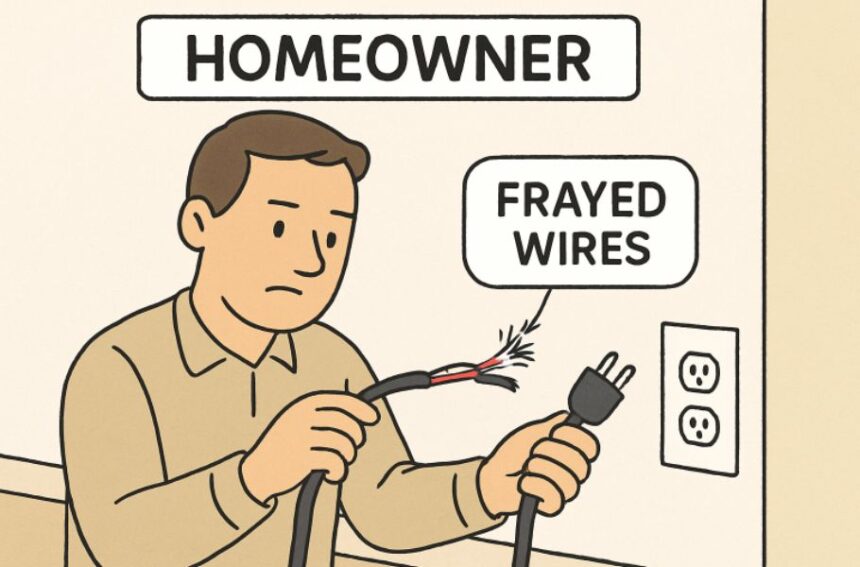Electrical safety at home is crucial to protecting your property and loved ones. Inspect cords, outlets, and appliances for damage, and avoid overloading circuits to reduce fire risks. Install ground fault circuit interrupters (GFCIs) in moisture-prone areas like kitchens and bathrooms. Always turn off power before attempting repairs and hire licensed electricians for complex work. Staying informed and proactive helps prevent hazards, ensuring your home remains safe, efficient, and up to code year-round.
Introduction
Electricity is central to modern living, powering everything from kitchen appliances to entertainment systems. However, the convenience of electrical power comes with a constant need for vigilance to prevent hazards such as electrical shocks, fires, and property damage. Taking proactive steps to ensure proper usage and maintenance of your home’s electrical system is vital for the safety of everyone in your household. If you ever face unexpected issues that require prompt attention, knowing how to reach an emergency electrician Cary NC can be a crucial part of your home safety plan.
Safeguarding your loved ones starts with understanding basic safety measures and being diligent about routine checks, maintenance, and education. Below, you’ll find an organized approach to essential electrical safety, ensuring you know how to protect your home from common risks.
Inspect Electrical Cords Regularly
One of the simplest yet most effective electrical safety practices is to inspect all power cords in your home for signs of damage. Frayed wires, cracked insulation, or loose plugs are inefficient and can spark fires or cause electrical shocks. Make it a habit to check cords each time you plug in or unplug a device, and immediately dispose of and replace any damaged cables. Remember, hiding cords under carpet or heavy furniture may seem convenient, but it increases the risk of overheating and damage. Always keep cords visible and out of high-traffic areas whenever possible.
Avoid Overloading Outlets
Plugging too many devices into a single outlet is a major cause of electrical fires in homes. Each outlet is built to supply a specific amount of electricity. Overloading it with multiple high-wattage appliances—such as space heaters, kitchen equipment, or entertainment systems—causes the wiring to heat up. Distribute appliances around various circuits in your house rather than relying on power strips or multi-outlet adapters for permanent solutions. If you frequently run out of outlets, consult a licensed electrician to safely add new ones to your home.
Use Extension Cords Safely
Extension cords should be considered a temporary fix, not a permanent wiring solution. When using them, ensure they are rated for the required electrical load—refer to the manufacturer’s label for maximum capacity details. Avoid daisy-chaining several cords together, which can quickly exceed safe power levels and create significant fire hazards. Never run extension cords underneath rugs, through doorways, or behind furniture where friction and pressure can deteriorate the cord and expose wires.
Choosing the Right Extension Cord
Depending on where you’ll use it, pick a cord intended for indoor or outdoor use. Opt for heavier gauge cords for appliances that draw a lot of current, such as power tools or space heaters. Lighter cords can overheat and fail under heavy loads. After use, unplug extension cords and store them in a dry and safe location to prolong their lifespan.
Install GFCI and AFCI Protection
Modern homes are safer thanks to Ground Fault Circuit Interrupters (GFCIs) and Arc Fault Circuit Interrupters (AFCIs). GFCIs are especially critical in areas with significant moisture, like bathrooms, kitchens, basements, and garages. They detect differences between incoming and outgoing current, shutting down the power if a ground fault occurs, thus reducing the risk of severe shock. AFCIs, on the other hand, help protect against electrical fires by detecting dangerous arcing conditions in wiring. According to the , AFCIs significantly reduce the risk of electrical fires in bedrooms and main living areas. If your home is older or unsure whether you have these devices, consult a professional electrician to assess your protection.
Educate Family Members on Electrical Safety
Prevention is always more effective than reaction. Make electrical safety a household conversation, particularly if you have young children. Teach everyone not to insert foreign objects into electrical outlets or use devices with wet hands. Discuss the reasons behind safety precautions and regularly remind everyone to report any signs of electrical problems, such as unusual smells, discolored outlets, or flickering lights. Consider installing safety covers on outlets within children’s reach and keeping electrical devices and cords out of sight and out of mind.
Leading by Example
Children learn best by watching adults. Model safe practices with electricity—such as unplugging appliances before cleaning them and not handling electrical devices near water. These small habits can prevent accidents and promote lifelong electrical safety.
Schedule Professional Electrical Inspections
Proactive electrical inspections are crucial, especially if your home is over 20 years old, or if you’ve recently remodeled or acquired new, energy-intensive appliances. Licensed electricians can spot outdated wiring, overloaded circuits, and other hidden hazards before they threaten safety. As recommended by the Electrical Safety Foundation International, schedule a whole-home electrical inspection at least once every five to ten years. Make it sooner if you notice persistent issues such as sparking outlets, tripped breakers, or hot switch plates.
By proactively addressing electrical hazards, conducting regular maintenance, and educating the household, you can create a much safer living environment and drastically reduce the risk of electrical accidents or emergencies in your home.





